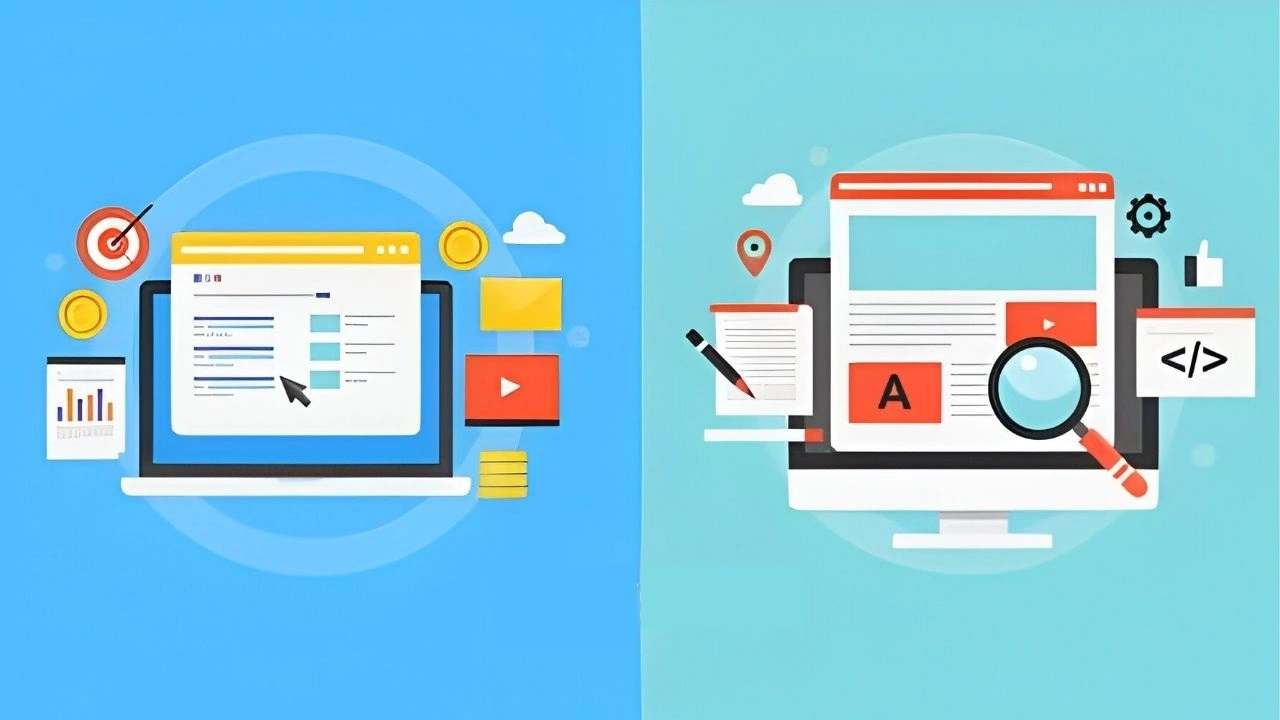
Table of Contents
In the realm of digital marketing, driving traffic to your website is a top priority. Two primary methods to achieve this are organic search and paid search. Both strategies aim to increase your online visibility and attract potential customers, but they operate in fundamentally different ways.
Understanding the key differences between organic search and paid search can help you make informed decisions about where to invest your marketing resources. In this article, we will explore the nuances of organic search and paid search, their benefits, and how they can complement each other in your overall marketing strategy.
What is Organic Search?
Organic search refers to the unpaid listings that appear on search engine results pages (SERPs) based on their relevance to the user's query.
These listings are ranked by search engine algorithms, which consider factors like keyword relevance, website authority, and user experience. Organic search results are typically seen as more credible by users and can provide long-term traffic growth.
Key Elements of Organic Search:
-
Search Engine Optimization (SEO):
- SEO involves optimizing your website's content, structure, and performance to improve its visibility on search engines. This includes keyword research, on-page SEO, technical SEO, and link building.
-
Content Quality:
- High-quality, relevant, and valuable content is crucial for ranking well in organic search. Regularly updating your blog, creating informative articles, and addressing user intent can boost your organic rankings.
-
User Experience:
- Ensuring your website is user-friendly, mobile-responsive, and fast-loading can enhance user experience and positively impact your organic search rankings.
What is Paid Search?
Paid search, also known as Pay-Per-Click (PPC) advertising, involves paying for ad placements on search engine results pages. Advertisers bid on keywords relevant to their target audience, and their ads appear above or alongside organic search results.
With paid search, you only pay when a user clicks on your ad, making it a cost-effective way to drive targeted traffic quickly.
Key Elements of Paid Search:
-
Ad Campaigns:
- Creating and managing ad campaigns involves selecting the right keywords, crafting compelling ad copy, and setting a budget. Platforms like Google Ads and Bing Ads are popular for running PPC campaigns.
-
Bid Management:
- Managing your bids effectively ensures you get the most value from your ad spend. Higher bids can improve your ad’s position, but it’s essential to balance cost and performance.
-
Ad Quality and Relevance:
- Search engines consider the relevance and quality of your ads when determining their placement. Creating ads that closely match user intent and providing a good landing page experience can improve your ad performance.
Benefits of Organic Search
-
Credibility and Trust:
- Users often trust organic search results more than paid ads, leading to higher click-through rates and better long-term relationships with customers.
-
Cost-Effective:
- Although it requires an investment in SEO efforts, organic search does not involve direct costs per click, making it a sustainable and cost-effective strategy.
-
Sustainable Growth:
- High rankings in organic search can provide consistent and long-term traffic, as opposed to temporary boosts from paid campaigns.
Benefits of Paid Search
-
Immediate Results:
- Paid search ads can drive traffic to your website almost instantly, making it ideal for time-sensitive campaigns or new product launches.
-
Targeted Reach:
- PPC allows you to target specific demographics, locations, and even times of day, ensuring your ads reach the most relevant audience.
-
Measurable Performance:
- Paid search campaigns offer detailed analytics, allowing you to track performance metrics like impressions, clicks, and conversions to optimize your strategy.
How Organic Search and Paid Search Complement Each Other
-
Holistic Visibility:
- Combining organic and paid search strategies can maximize your visibility on SERPs, capturing both users who prefer organic results and those who are influenced by ads.
-
Data-Driven Insights:
- Insights gained from PPC campaigns, such as high-performing keywords and ad copy, can inform and improve your SEO efforts.
-
Balanced Strategy:
- While SEO builds long-term traffic, PPC can provide immediate results. Together, they create a balanced approach to driving traffic and achieving your marketing goals.
Conclusion on Organic Search vs Paid Search
Understanding the differences between organic search and paid search is crucial for developing a comprehensive digital marketing strategy. Both have unique advantages and can complement each other to enhance your online presence.
By leveraging the strengths of both organic and paid search, you can drive targeted traffic, increase conversions, and achieve sustainable growth for your business.
Unlock the Power of Search Marketing with Us!
Ready to optimize your search marketing strategy? At Softhat IT Solutions, we specialize in both SEO and PPC advertising to help you achieve your business goals.
Get in touch today to learn how we can boost your online visibility and drive more traffic to your website. Reach out to us to schedule a consultation and start seeing results!
